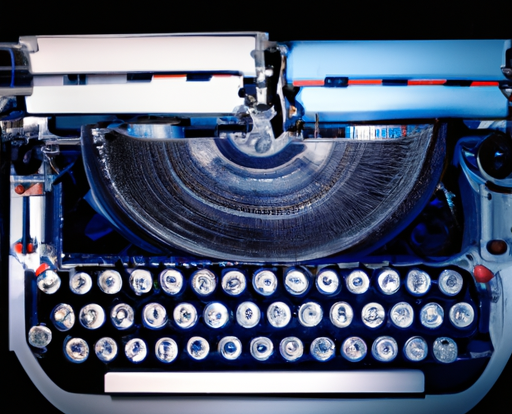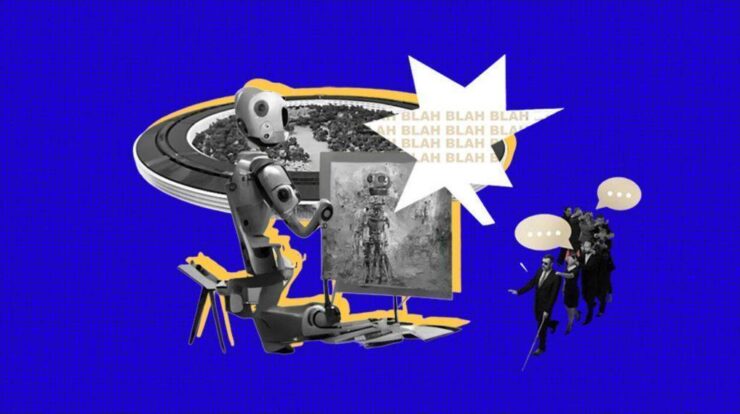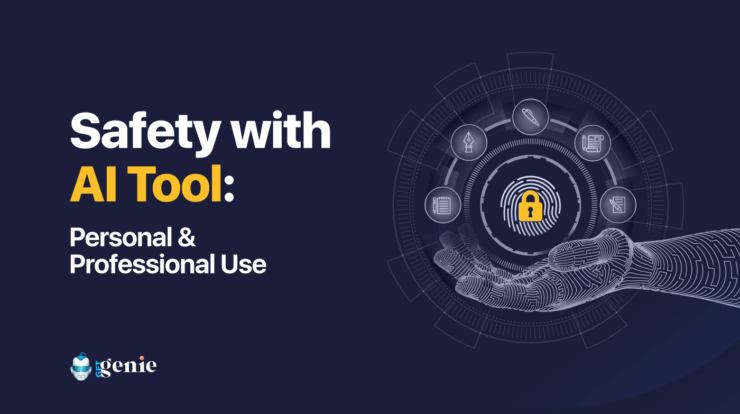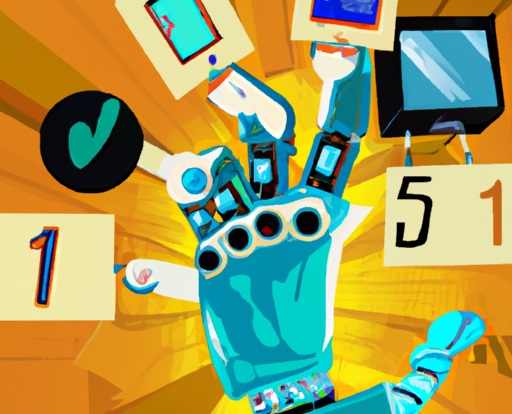
Imagine a world where words flow effortlessly from the minds of machines, spinning intricate tales that rival the masterpieces of human creativity. It’s a world where the traditional craft of writing seems threatened by the rise of Artificial Intelligence (AI). But is this truly the end of creative writing as we know it? As we explore the impact of AI on the realm of storytelling and expression, we embark on a journey that navigates the possibilities and challenges, ultimately unveiling the profound influence that AI holds over the future of creative writing.
Impact of AI on Creative Writing
The emergence and advancement of artificial intelligence (AI) technology has had a profound impact on various industries, and the field of creative writing is no exception. With the rise of automated writing and the development of enhanced writing tools powered by AI, the way we write and create content has been revolutionized. In this article, we will explore the implications of AI on creative writing, discussing both the advantages and disadvantages, ethical concerns, challenges for human creativity, collaboration between humans and AI, and the future of creative writing.
The Rise of Automated Writing
One of the most significant developments in the field of creative writing is the rise of automated writing. AI algorithms have become increasingly sophisticated, capable of generating written content that often rivals human-generated work. Automated writing tools utilize machine learning and natural language processing capabilities to analyze vast amounts of data, identify patterns, and generate unique and coherent written pieces.
Advantages of AI in Writing
Automated writing offers several advantages that cannot be overlooked. For one, it allows for faster content creation and a substantial reduction in the time and effort spent on writing tasks. With AI-generated content, writers can produce high-quality articles, blog posts, and other written materials in a fraction of the time it would take to write manually.
Furthermore, AI can enhance the overall quality of writing. Automated writing tools can detect and correct grammar and spelling errors, ensuring that the final piece is polished and error-free. This technology can also assist in ensuring consistency and adherence to style guidelines, maintaining a professional standard throughout the writing.
Disadvantages of AI in Writing
However, along with its advantages, AI in writing also brings some disadvantages. One significant concern is the potential lack of originality and creativity in AI-generated content. While AI can mimic human writing styles and patterns, it may struggle to produce truly innovative and groundbreaking work. Creative writing often relies on the unique perspectives, emotions, and experiences of human authors, which may be difficult for AI algorithms to replicate.
Additionally, automated writing can lead to ethical concerns surrounding plagiarism. As AI algorithms analyze and replicate existing content, there is a risk that AI-generated work may inadvertently or intentionally reproduce copyrighted material without proper attribution. This poses a significant challenge to ensuring intellectual property rights and fair use in the writing industry.
Ethical Concerns
The ethical implications of AI in creative writing extend beyond plagiarism concerns. As AI algorithms become more advanced, there is a growing debate about the potential impact on the role of human authors. Some argue that AI-generated content may devalue the creative work of human writers and diminish the recognition and compensation they receive for their craft. This raises questions about the fair distribution of opportunities and rewards within the writing industry.
Enhanced Writing Tools
In addition to automated writing, AI has also led to the development of enhanced writing tools that aid human writers in their creative process. These tools, powered by AI algorithms, offer various features and functionalities designed to improve the quality and efficiency of writing tasks.
AI-Powered Grammar and Spell Checkers
One of the most widely used AI-powered writing tools is the grammar and spell checker. These tools utilize AI algorithms to identify and correct grammatical errors, punctuation mistakes, and spelling inaccuracies. With real-time feedback and suggestions, writers can quickly improve the overall clarity and coherence of their writing, ensuring that their work is error-free.
Content Generators
AI-powered content generators have gained popularity among writers, particularly in industries that require extensive content production. These tools can generate topic ideas, outlines, and even full-length articles based on a given prompt or keyword. Content generators leverage AI algorithms to analyze vast databases of information, extract relevant data, and create coherent and valuable content. While they may not replace human creativity entirely, these tools serve as a valuable resource for idea generation and content research.
Plot and Character Development Tools
For fiction writers, AI-powered tools that assist in plot and character development have become invaluable resources. These tools analyze existing story structures, archetypes, and character profiles to provide suggestions and guidance to writers. By leveraging AI algorithms to identify patterns and generate ideas, these tools can assist writers in creating engaging and well-developed narratives.
Challenges for Human Creativity
While AI-powered writing tools offer numerous benefits, they also present challenges for human creativity in the writing process. While AI can assist in content creation, it may struggle to replicate the emotional depth and intuition that characterizes human-generated work. These uniquely human qualities often play a crucial role in creating compelling and relatable writing that resonates with readers on an emotive level.
Lack of Originality
One of the primary challenges associated with AI-powered writing is the potential lack of originality. While AI algorithms can generate coherent and high-quality content, they may lack the ability to think outside the box and produce truly innovative and original ideas. Originality is a hallmark of creative writing, and the ability to bring fresh perspectives and ideas to the table is something that human authors excel at.
Emotional Depth and Intuition
Another challenge for human creativity in the face of AI is the ability to infuse writing with emotional depth and intuition. AI algorithms are primarily data-driven, relying on patterns and statistical analysis to generate content. This can make it challenging for AI to capture the nuance, emotional complexity, and subtleties that human authors often bring to their work. The ability to evoke emotions, establish deep connections with readers, and create empathetic characters is a unique skill that remains firmly rooted in human creativity.
Innovation and Unique Perspectives
AI-generated content, by its very nature, is based on existing data and patterns. This can limit its ability to offer fresh perspectives and innovative ideas. Human authors, on the other hand, draw from their unique experiences, knowledge, and worldview to create original and thought-provoking work. The ability to challenge preconceived notions, question societal norms, and present alternative viewpoints is a vital aspect of human creativity that AI algorithms may struggle to replicate.
Collaboration between Humans and AI
While the challenges for human creativity are significant, collaboration between humans and AI can harness the strengths of both to achieve remarkable results. By viewing AI as a tool to augment human creativity rather than replace it, writers can harness the power of AI technology while maintaining their unique voice and perspective.
Augmenting Human Creativity
AI can serve as a valuable resource for human writers, providing inspiration, generating ideas, or offering alternative approaches to writing challenges. By leveraging AI-powered content generators or plot development tools, writers can explore new avenues and enhance their creativity. AI-generated suggestions can spark new ideas or highlight areas for improvement, enabling writers to push the boundaries of their creativity further.
Refining and Polishing Writing
AI-powered writing tools, such as grammar and spell checkers, can assist in refining and polishing writing, ensuring that the final piece is error-free and professional. By utilizing these tools, writers can save time and effort on the tedious tasks of proofreading and editing, allowing them to focus on the more creative aspects of their work. This collaboration allows writers to strike a balance between efficiency and creativity, optimizing their writing process for maximum effectiveness.
Maintaining Authenticity
As AI becomes increasingly integrated into the writing process, it is crucial to maintain the authenticity and human element in creative writing. While AI can enhance productivity and streamline certain aspects of the writing process, it should not replace the unique voice and perspective of human authors.
Preserving the Human Element
To maintain authenticity, human authors must focus on harnessing their individual creativity, experiences, and voice. AI should be seen as a tool to support and enhance the creative process rather than overshadow it. By infusing their work with personal anecdotes, emotions, and unique perspectives, human authors can create writing that resonates deeply with readers and distinguishes itself from AI-generated content.
Acknowledging AI Assistance
It is essential to be transparent about the use of AI in the writing process. Authors should acknowledge and give credit to AI-powered writing tools when appropriate. This not only fosters ethical practices but also ensures that readers are aware of the role AI played in the creation of the content. By being upfront about AI assistance, authors can maintain credibility and integrity in their work.
Implications for the Writing Industry
The advent of AI in creative writing has significant implications for the writing industry as a whole. This technology presents new opportunities and career options, but also raises concerns about job displacement, quality control, and copyright issues.
New Opportunities and Career Options
AI technologies have opened up new avenues for writers to explore. Writers can leverage AI-powered content generators to increase their productivity and take on more writing projects. Additionally, writing and technology companies are investing in AI research and development, creating opportunities for writers to work in AI-driven content creation roles or contribute to the development of AI-powered writing tools.
Potential Job Displacement
While AI can enhance and augment human creativity, it is also important to acknowledge the potential for job displacement within the writing industry. As AI algorithms become more advanced, there is a possibility that certain writing tasks, such as content generation or copyediting, may be automated. This raises concerns about the impact on employment opportunities for human writers and the need to adapt skills to stay relevant in a changing landscape.
Quality Control and Copyright Issues
AI-generated content poses challenges for quality control and copyright enforcement. With the vast amount of content being produced by AI algorithms, ensuring the accuracy and reliability of the information becomes a critical concern. Additionally, issues of copyright infringement and plagiarism arise, as AI algorithms may unintentionally reproduce copyrighted material. The writing industry must navigate these challenges and establish measures to protect intellectual property rights and maintain quality standards.
The Future of Creative Writing
The future of creative writing lies in the adaptation and evolution of the writing process in response to AI technology. While AI has the potential to transform the way we write, it should be embraced as a creative tool rather than feared as a replacement for human authors.
Adaptation and Evolution
Writers must adapt to the changing landscape of creative writing by embracing AI technology where it enhances their craft. By staying informed about the latest AI-powered writing tools and techniques, writers can effectively leverage AI to explore new creative horizons and connect with audiences in innovative ways. Flexibility and a willingness to embrace change will be essential in navigating the future of creative writing.
Embracing AI as a Creative Tool
AI should be seen as an ally, not a threat, to human creativity. By embracing AI as a creative tool, writers can harness its capabilities to enhance their writing process, expand their creativity, and engage readers on a deeper level. The key lies in striking a balance between utilizing AI to streamline certain tasks and ensuring that the human element remains central to the creative process.
In conclusion, AI has undeniably had a profound impact on creative writing. From automated writing to enhanced writing tools, AI has the potential to revolutionize the way we write and create content. However, it is crucial to acknowledge the advantages and disadvantages, ethical concerns, challenges, and opportunities that AI brings to the field. By fostering collaboration between humans and AI, maintaining authenticity, and embracing AI as a creative tool, the future of creative writing can be shaped to unlock new possibilities for writers and readers alike.






